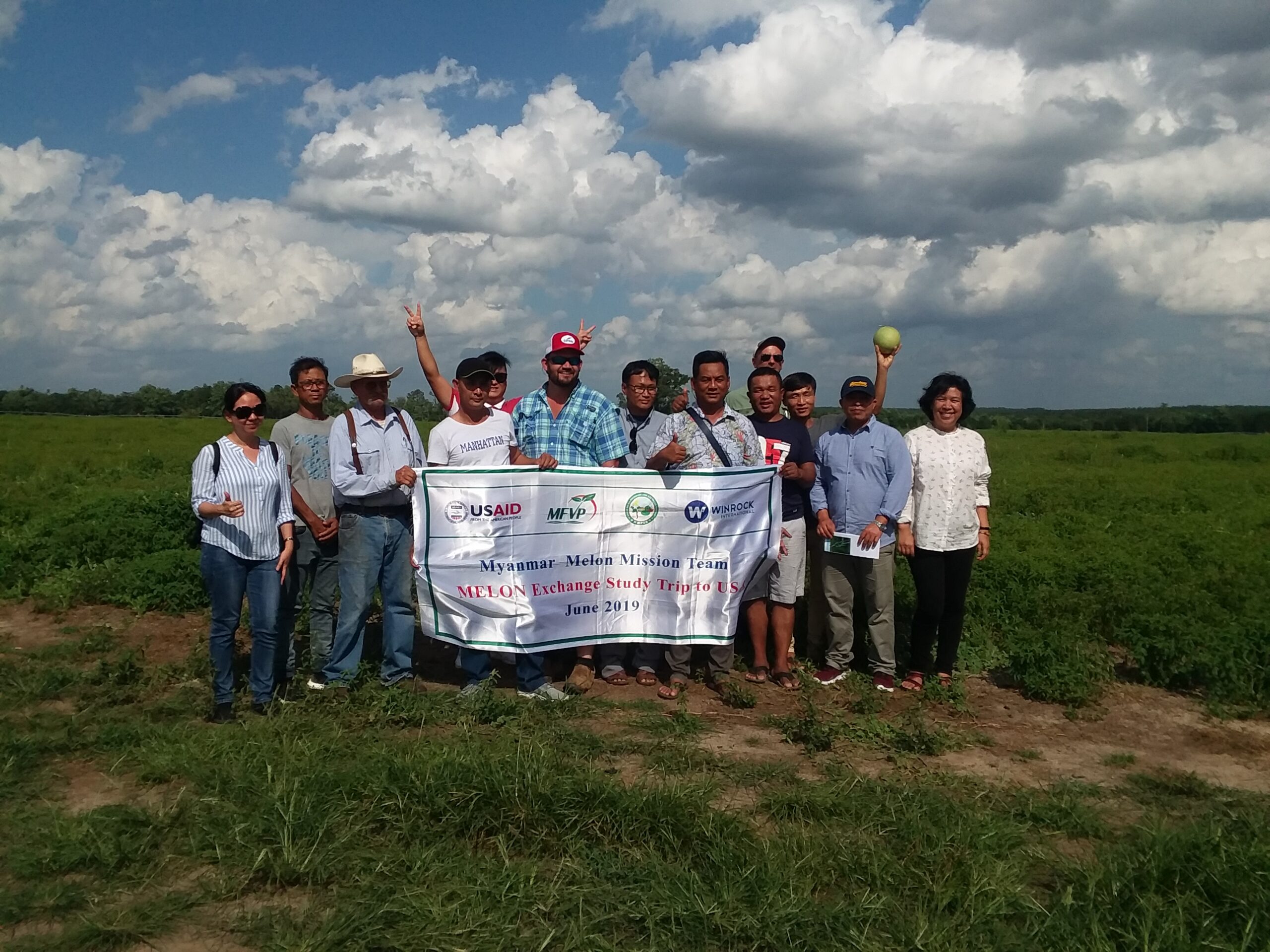
Volunteer Post
When Life Gives You Melons…
Gelsey Bennett, VC-RD Program Officer, Agriculture & Volunteer Programs
For about 5 years, the USAID Value Chains for Rural Development (VC-RD) project, implemented by Winrock International, has been supporting the melon value chain in Myanmar along with grantee Myanmar Fruit, Flower, and Vegetable Producer and Exporter Association (MFVP). In 2016 and 2017, VC-RD and MFVP hosted various melon production volunteers, including Dr. Timothy Coolong, to assess the melon value chain and train melon farmers. These volunteers found significant issues affecting the melon value chain: Bacteria Fruit Blotch (BFB) disease and high postharvest losses at the packaging and handling stage.
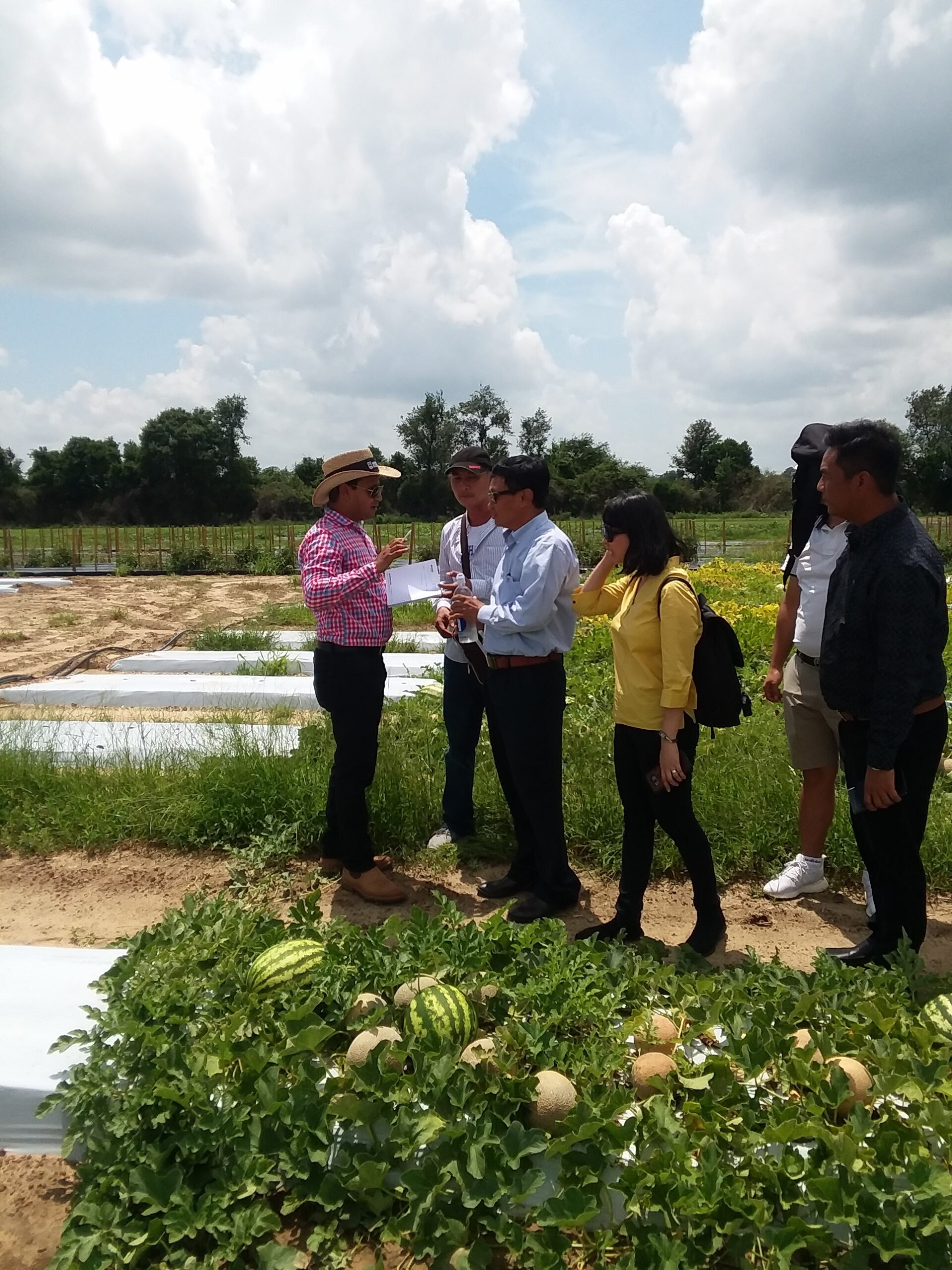
MFVP decided that exposure to best practices from US farmers would be beneficial for Myanmar farmers. In October 2017, MFVP members and avocado farmers successfully learned from California avocado producers and decided to replicate that fruitful experience for melon farmers by organizing the Myanmar Melon Mission to the US. To get advice on how to proceed, Winrock staff contacted Dr. Tim Coolong, past volunteer and Associate Professor at the University of Georgia-Extension. Dr. Coolong kindly offered to help plan and reach out to his contacts in the US melon industry. Southern Georgia was selected as the primary visit site since this region is the largest producer of watermelons in the US. The visit was planned for mid-June, as this is the prime watermelon harvesting and shipping season, in advance of the July 4th holiday when US watermelon consumption is at its highest.
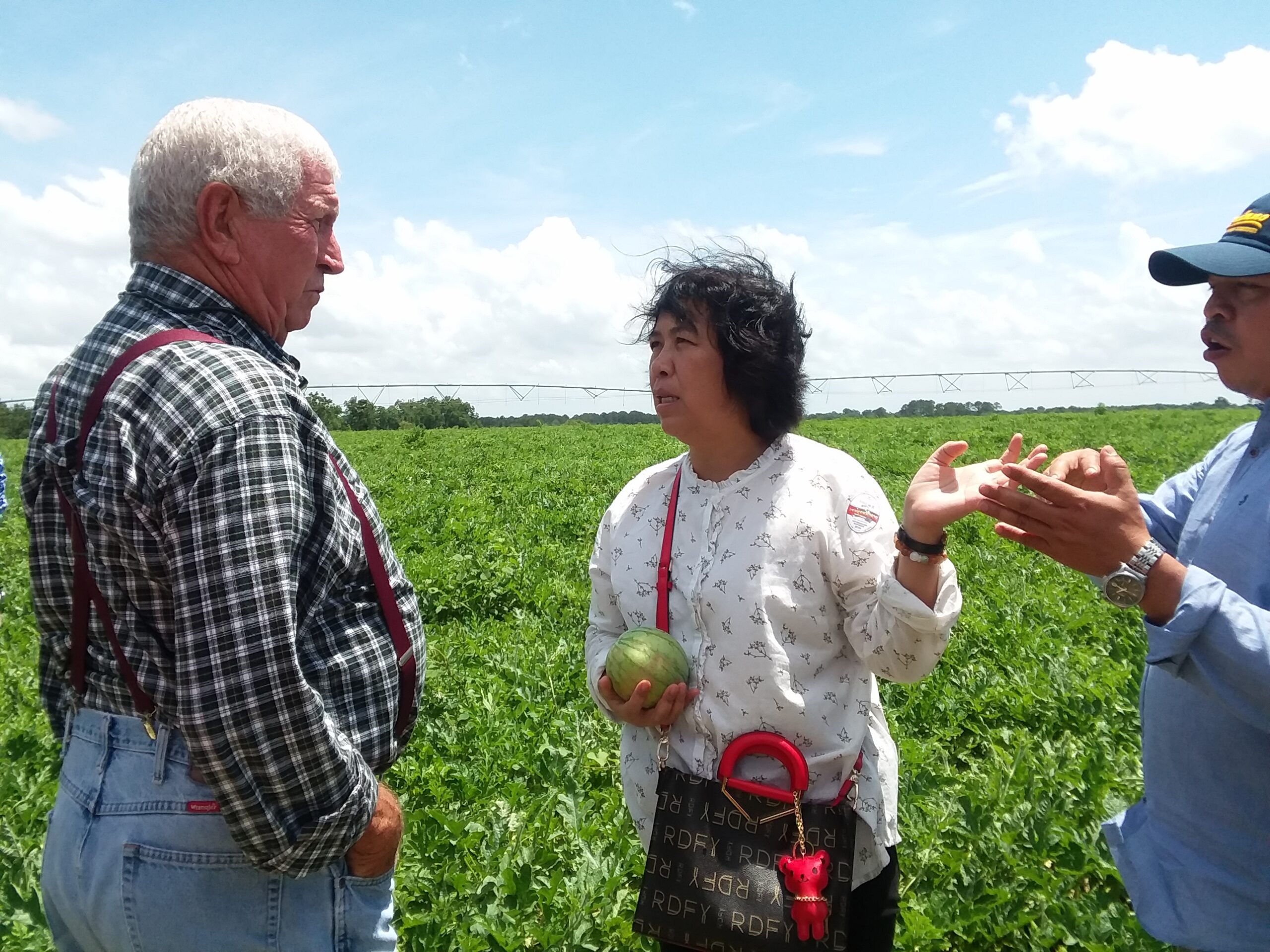
Ten representatives participated in the Myanmar Melon Mission to the US. The group included MFVP’s General Secretary, six members of the Myanmar Melon Producer and Exporter Association, two members of the Myanmar Fruit Commodity Center, and one VC-RD staff. The main objectives of the trip were to observe best practices implemented by US melon farmers, from farm to market, highlighting pest and disease control and packaging at the farm level.
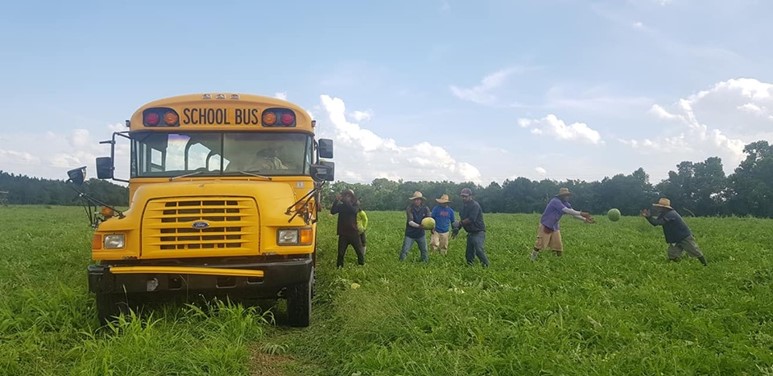
Given the participation of members of the Myanmar Melon Producer and Exporter Association, the group was also interested in learning about the role of a producer association. On the first day of the tour, the group visited the National Watermelon Promotion Board. Representatives of the Board presented their organization’s history and structure for the sustainability of the watermelon industry in the US. The group met with the Board’s Communications and Marketing Director and learned about marketing and the importance of increasing consumer demand for watermelon through promotion, research, and educational programs.
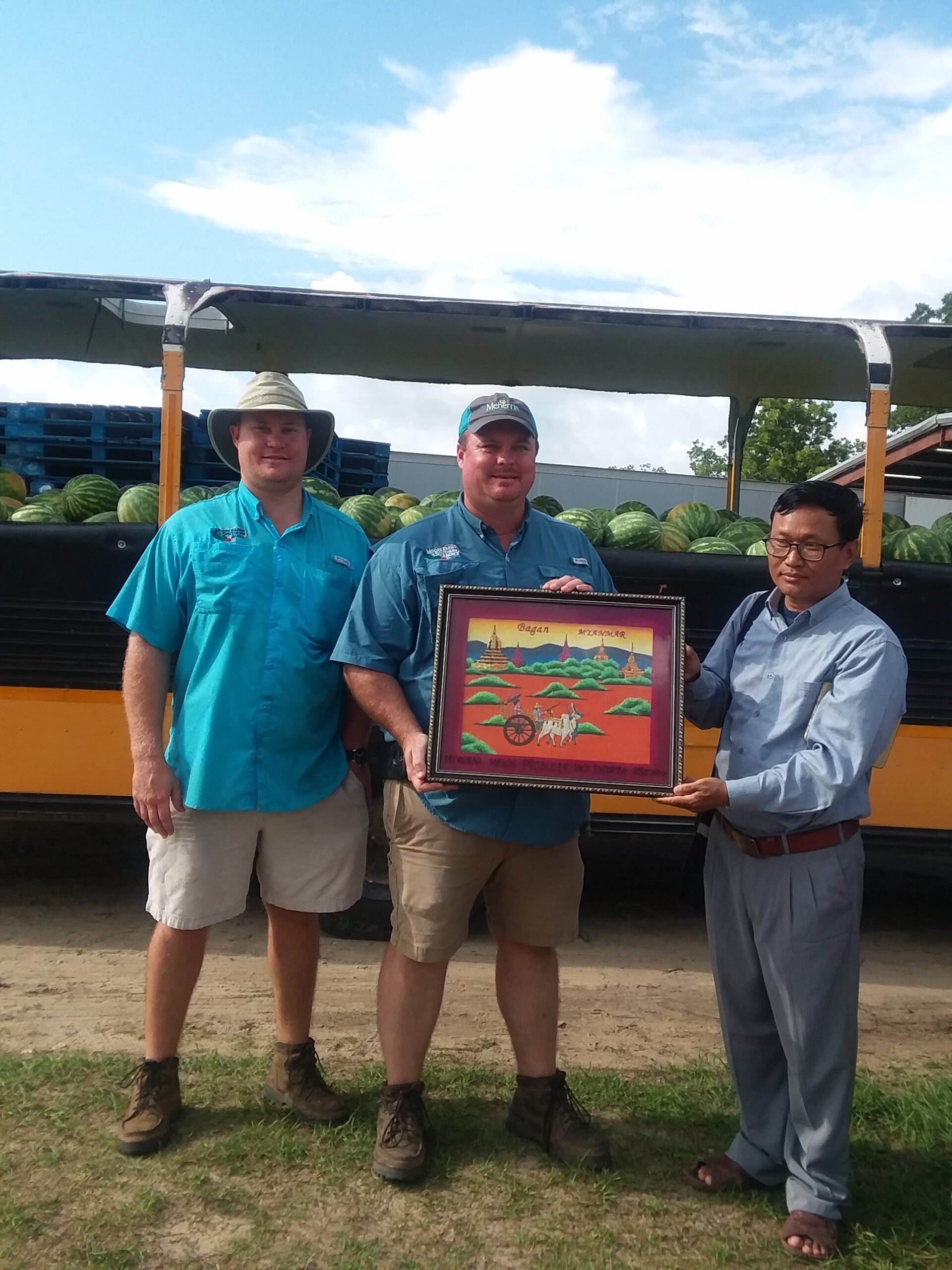
The following days were dedicated to field visits to learn about production, shipping, and disease control of melons. The group met with several nationally recognized family farms such as Border Melons East and Lewis Taylor Farms. The group observed the best examples of farm to packaging in Southern Georgia. Their stringent adherence to Food and Drug Administration safety measures was an excellent example to showcase to the Myanmar melon producers.
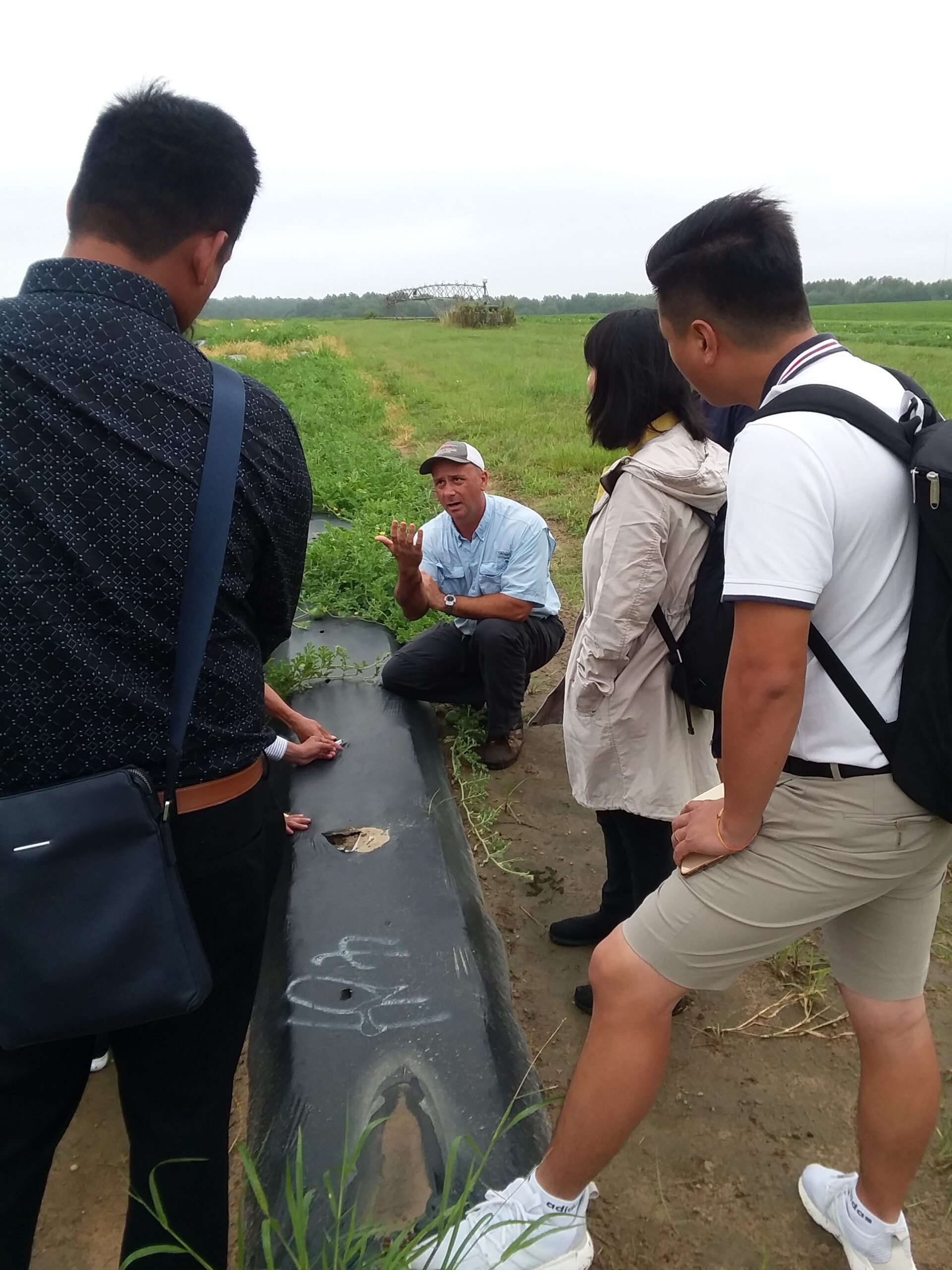
The group also visited the University of Georgia-Tifton campus. Dr. Bhabesh Dutta, Assistant Professor, and Extension Vegetable Disease Specialist gave a lecture on melon diseases. Dr. Dutta pointed out how critical it is to remain diligent in the pursuit of disease control for all melons grown and shipped.
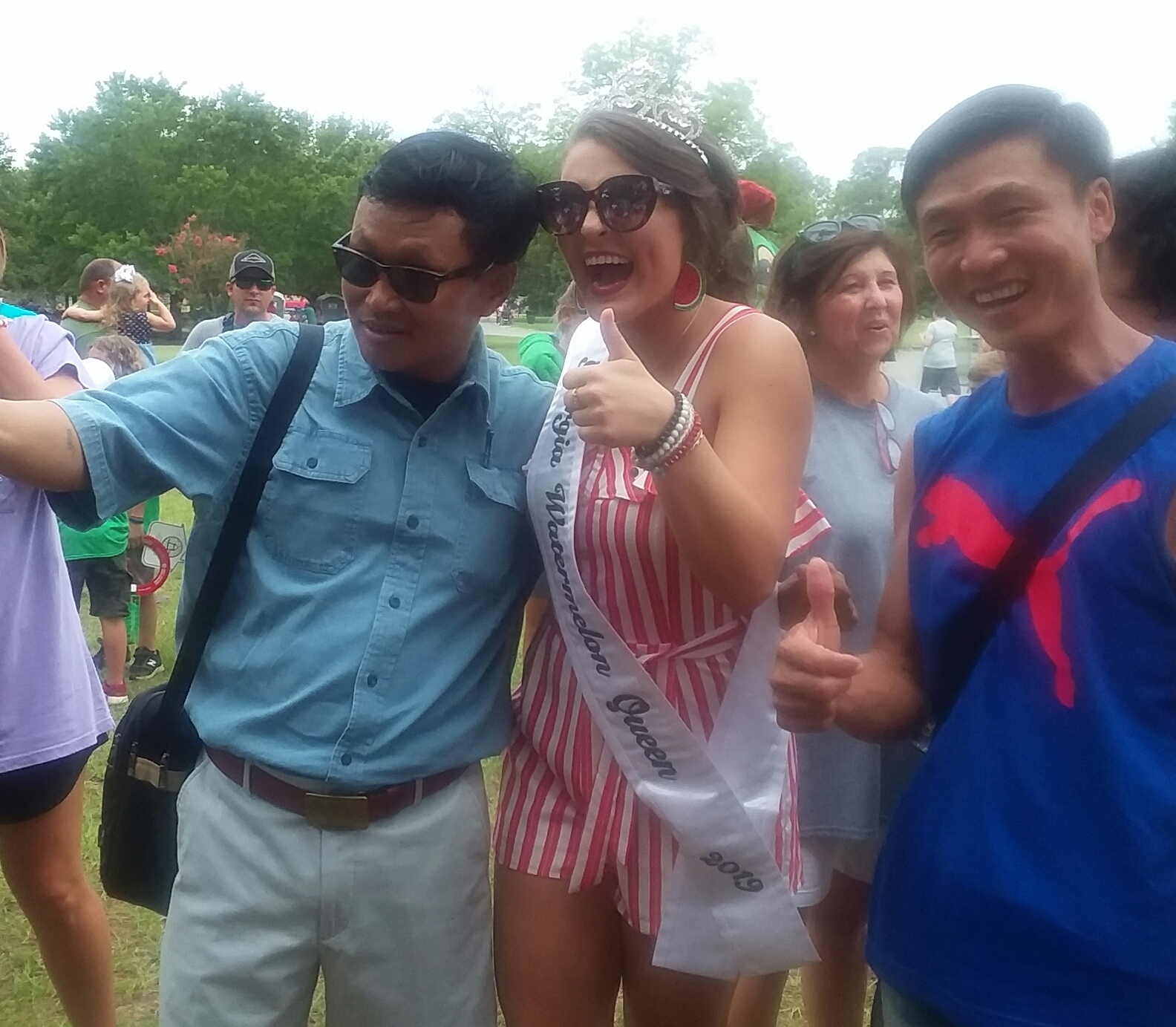
The group concluded their Georgia visit with a trip to the Watermelon Festival in Cordele. Here they were introduced to a traditional, Americana small-town celebration in all its glory! They were treated to live music, a watermelon eating contest, arts and crafts, local food, and free watermelon! They met the festival’s Watermelon Queen and saw hot air balloons and antique cars. Before departing the US, the group will also attend the California Watermelon Festival.
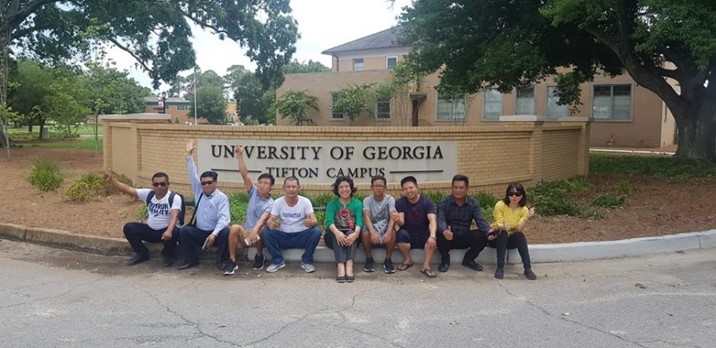
Mr. Zaw Min, Chairman of Financing of the Myanmar Melon Producer and Exporters Association, felt the examples of packaging and shipping would greatly benefit the group when they returned home to Myanmar. The group noted that they learned a lot and are excited to return to Myanmar and begin implementing those practices and disseminating them to their peers.
The Myanmar Melon Mission would not have been possible without Dr. Tim Coolong’s support with planning. Thank you!

